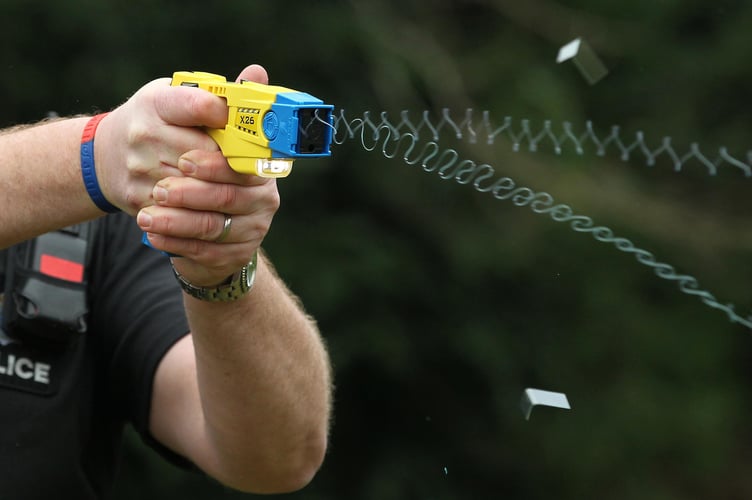Black people in Dyfed and Powys are more than five times as likely to experience forceful policing as white people, new figures show.
Civil rights organisation the Runnymede Trust called the figures "shameful” and called on police forces to investigate alternative approaches to policing.
Home Office figures show people from black ethnic groups were 3.2 times as likely to be targeted by police use of force than white people across England and Wales, excluding the Met Police, in the year to March.
In Dyfed and Powys, forceful tactics including restraint and unarmed use of force were used 111 times against black individuals and 7,331 times against white people this year.
Census figures from 2022-23 suggest around 1,300 black people and 502,000 white people live in the Dyfed and Powys area.
It means Dyfed-Powys Police used force about 86 times per 1,000 black individuals and 15 times per 1,000 white people.
This suggests black people are 5.9 times as likely to experience force from the police as white people.
Police forces in England and Wales, including the British Transport Police, recorded 1.1 million use of force tactics in the year to March, including 8,000 in Dyfed and Powys.
Excluding the BTP, which only provided data for the first time this year, this was up 8% from the previous year.
Nationally, the most common reason an officer used force was to protect themselves.
Stephen Walcott, senior researcher at the Runnymede Trust, said the racial disparities and the overall increase in the use of forceful tactics are "equally concerning" as they are "violent and harmful".
He added: "We must look towards alternatives to crime and harm prevention, which reduces the likelihood of police contact and eliminates the reliance of 'tough on crime' approaches.
"That means meaningful investment into communities and societal infrastructure that addresses the social and material conditions which lead to crime and allow harm to thrive."
A National Police Chiefs' Council spokesperson said it is working to understand the "disproportionality" in how race and ethnicity feature in police use of force statistics.
They added it remains committed to the Police Race Action Plan aimed at building "an inclusive, anti-racist organisation" and addressing the discrimination faced by black people who work within or interact with the police.
A Home Office Spokesperson said: "Our police regularly put themselves in harm’s way to keep our streets safe, but nobody should be treated differently based on their race or ethnicity.
"All police use of force should be reasonable, proportionate and necessary.
"When officers take the difficult decision to deploy force they are accountable through the law for their actions, and it is important that there can be scrutiny by the people they serve."




